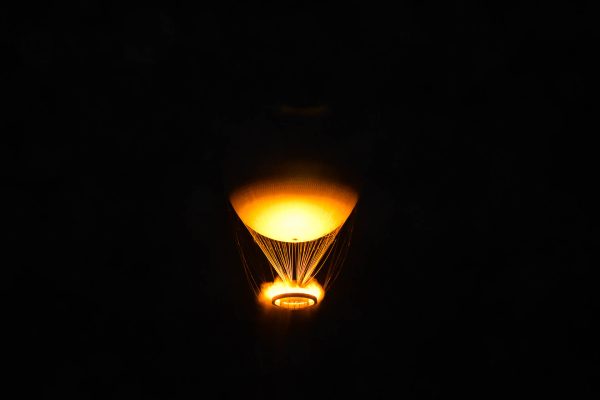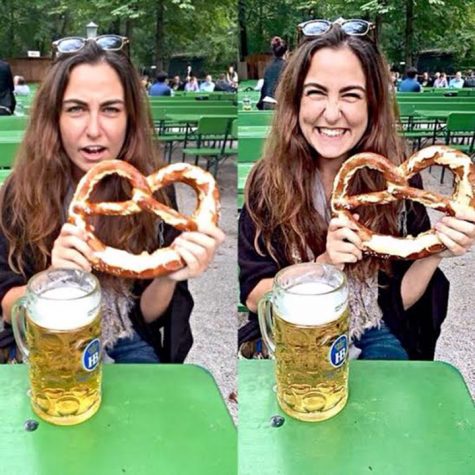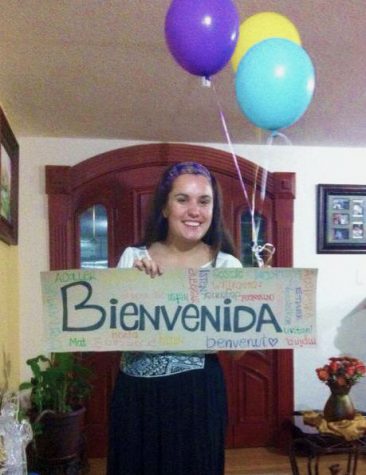DURBAN: Reflections (Part I)
After two and a half crazy weeks – one without wireless connection and the other one and a half jam-packed with tests and a political simulation – I’m extremely glad to piece together what will be a three-part blog.
This first part will concentrate on my time during my eight day long rural homestay, the second part will discuss leaving my homestay in Cato Manor and transitioning to my homestay in Newlands, and finally the third part will endeavor to explain this past week’s political simulation and the current political and social environment in South Africa.
Without further ado, what the heck I’ve been up to: my rural homestay was not entirely what I’d been expecting. I’d been cautioned against the lack of electricity, plumbing, and other amenities. I was also told that the role of women in rural society was likely to clash with my western, feminist beliefs.
It was different. The lack of plumbing didn’t bother me – an outhouse is hardly a foreign concept to a Texan. Electricity surprisingly coursed through my homestay house (though I didn’t bring any electronics), and the limitations of our kitchen and other amenities didn’t bother me.
We boiled the water to make a bath, and I shared the bath water with two other students who lived with me. All laundry was done by hand, and we’d hang it on the line. During my stay I wore skirts that passed my knees and shirts that covered my shoulders, but I didn’t find it constricting and if I’d been in less I doubt any of my neighbors would have minded.
I really liked it, rural life. The stars at night were dazzling and the beach (which was an hour’s walk away) was beautiful and peaceful. Green hills rolled across the landscape and the sea was almost always in sight on the horizon.
My family consisted of a grandmother, grandfather, grandson, granddaughter, and great-granddaughter. The parents of the grandchildren and great-grandchildren lived in the city. For the most part my family spoke fluent English (and Zulu), except my grandmother who mostly only spoke Zulu.
During our stay we spend two days visiting at a prison a town away. We spoke and interacted with the juvenile unit (age 18 to 24). At first I was extremely apprehensive, but as time passed and the imprisoned people and SIT (School of International Training, the school I attend here) students interacted, the tension eased.
We spoke about our families and our dreams; the fact that many of the incarcerated men were our same age made our discussions even more poignant. By the end of the second day at the prison with the Phoenix Program (a Non-Government Organization that works with prisons for rehabilitation and restorative justice) our opinions of those behind bars had been altered. As I left the prison and the men told the SIT group that they hope our dreams came true, I doubt a single student didn’t hope the same for the men, hope that life after prison would offer the men a second chance at their dreams.
Our other days at my rural homestay were spent painting two rooms at the local secondary school (seventh through twelfth grade), and interacting with students.
Rural schooling is known to be lacking by and far in South Africa. Often schools don’t have adequate supplies; students have to walk long distances; teachers aren’t always up to par; passing rates are low.
The school we painted at may have suffered from these and other problems. Despite that, the students had hope and pride. They sang their national anthem and other songs beautifully. The classrooms lacked air conditioning, the water tanks ran dry, but the students still came to class and worked day in and day out in hopes of passing their finals, or matrics.
The other parts of our days and the weekend were filled with the beach and getting to know our family. Myself and the two other students I lived with became extremely attached to the children in our household. Our 12-year-old sister and 14-year-old brother took care of their 4-year-old niece when their grandparents weren’t around. They helped us to carry the water, they helped make food, and they showed us how to wash our clothes by hand and hang them on the line.
My rural homestay was truly filled with happy memories and some important realizations.
In my experience, South Africa views water differently. People here see water as a vital resource that is expensive and not to be wasted. Bathing is usually done in a small basin with two inches of water and the aid of a washcloth and cup. In the short time I’ve been here, I’ve realized how much water I’ve wasted. Additionally, I’ve realized what a luxury lukewarm (what is even hot?) water is.
My time here has also made me realize how expensive food can be for families, and the necessity of not wasting food. I’ve been served a lot of rice and putu (dry maize meal) with sauce and some kind of meat. I’ve learned to serve myself so as to not leave food on my plate.
Additionally I’ve seen the value of money. As an American who thinks in dollars looking at rand it’s often easy to think something is so cheap. Yet given the families I’ve lived with I’m beginning to realize that my definition of cheap isn’t every person’s.
As I stay here, my realizations are continuing to multiply. If you want to here some more, tune in on Friday for two new posts (I won’t be posting Thursday because it’s Human Right’s Day, a holiday from school and in my case, internet).
For more on what I’ve written from South Africa, check here.




